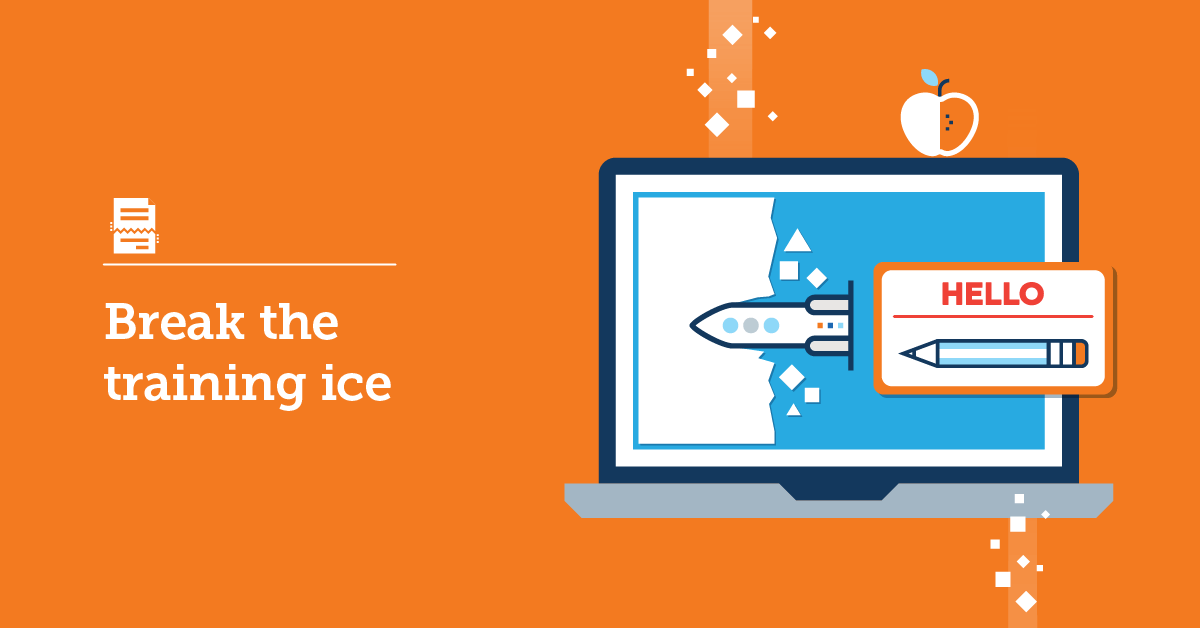How important is delegation?
Picture a bustling professional kitchen preparing multiple complex dishes simultaneously. Now imagine the head chef insists on preparing and cooking everything by themselves.
What happens? The overwhelmed chef ends up sacrificing speed or quality to get orders out. And you end up with unhappy customers and a stressed-out chef.
Now imagine what happens when the chef delegates. The kitchen operates like a well-oiled machine. Each team member contributes their skills and expertise to create culinary masterpieces.
The takeaway? Knowing how to delegate tasks effectively is crucial to success.

Why delegating can be so challenging
No one wants the burden of doing everything themselves. But delegation can be daunting when you feel solely responsible for outcomes.
There are several reasons you may struggle to delegate effectively, including:
- Fear of losing control: Trusting others to complete tasks can trigger anxiety about relinquishing control over the outcome.
- Difficulty transitioning into a delegating role: Moving from being an individual contributor to a manager requires a shift in mindset. It can be tricky to learn to leverage your team’s strengths when you’re used to relying on your abilities to get things done.
- Worries that you’re hiding your talents: You may fear that delegating tasks means distancing yourself from the actual work. This can reduce visibility and hinder your ability to showcase your skills.
- Lack of trust in team members (especially for new teams): Trust is a crucial component of effective delegation. If you still need to establish trust within a team, handing off assignments with confidence can be challenging.
- Reluctance to invest time in training: Delegation often involves training team members on how to do their jobs. This can seem like an added burden on your already heavy workload.
7 ways to delegate tasks effectively
Knowing how to delegate tasks effectively and empower your team will help you rest easy as you hand off critical tasks.
Here are some tactics to keep in mind as you build your delegation skills to keep projects on track and boost productivity. Feel free to skip to our downloadable delegation cheatsheet that can be your reference for an easy-to-plan delegation strategy.
1. Know your team
Understanding your team members’ strengths and weaknesses is crucial to effective delegation. By identifying their areas of expertise, interests, and workloads, you can allocate tasks more strategically and maximize productivity.
When you know what your team can do, you’ll be more willing and able to leave work in their hands.
2. Set clear expectations up front
Delegating tasks without clearly defining expectations can lead to confusion and subpar results. If you want quality results, communicate the goals, desired outcomes, deadlines, and any relevant guidelines with every assignment.
Communicate the expectations, goals, and desired outcomes for the delegated tasks. This will empower your team to make informed decisions and take ownership of the work.
3. Work on time management
If you want projects to stay on track, you (and your team) need strong time management skills. Learning to set priorities and build efficient processes will boost employee productivity. It will also allow you to step away from micromanaging to focus on higher-value activities.
Training gives the team a common vocabulary for how to structure work efforts. This, in turn, ensures projects come together on time to prevent bottlenecks and keep things running smoothly.
4. Develop people and project management skills
Succeeding in how to delegate tasks effectively also means managing a project’s moving pieces–and the people behind those pieces. Leadership training will help you build the skills and confidence to handle both.
Upskill and empower your leaders
Deliver engaging leadership training programs with TalentLMS.
Easy to set up, easy to use, easy to customize.
Invest time in developing your team management skills. Building trust, empowering your team, and fostering open communication are essential for successful delegation.
Similarly, understanding the essentials of project management will help you coordinate individual efforts. When you have an organized approach, you can be sure nothing falls through the cracks.
5. Provide support and resources
Delegating can be exhausting when you have to send back work for revision or rework. The key to overcoming this hurdle is to prepare the right resources in advance and offer support throughout the process.
Equip your team with the tools, resources, and guidance they need to succeed. For instance, include documentation of technical specs or style guides in the task request. Or ensure employees have access to the materials and files they’ll need before they begin.
Then, be available to address questions, provide assistance, and remove any obstacles.
6. Celebrate successes and learn from failures
Recognizing and celebrating the team’s contributions not only boosts morale. It also reinforces the value of effective delegation. Celebrating will show you and your team what’s working and build your confidence in the process.
Meet TalentLibrary™
A growing collection of ready-made courses that cover the soft skills
your teams need for success at work
![]()

Similarly, when failures occur, view them as learning opportunities. Document mistakes and use them to identify areas for improvement and set future goals.
7. Learn how to delegate tasks effectively to remote workers
In today’s increasingly remote work landscape, mastering the art of how to delegate tasks effectively to remote workers is crucial for solid team collaboration.
Whether you’re working in a remote or hybrid environment, you need to ensure you can apply all of these tips to employees you don’t see on a daily basis. Here are some strategies for delegating tasks to remote team members:
- Establish clear communication channels: You can’t walk over to a remote employee’s desk, chat about expectations, and provide support. So it’s essential to have reliable communication channels in place. Use tools like video conferencing, instant messaging, and project management software to stay connected.
- Establish regular check-ins and feedback loops: Schedule regular virtual meetings or check-ins with your remote team members. Use them to provide updates, offer guidance, and address any questions or concerns.
- Leverage technology for task management: Use project management tools and collaborative platforms to assign tasks, track progress, and monitor deadlines. These tools give remote team members visibility into the overall project so they can stay organized.
- Make training accessible to all: Training your people in essential skills like time management boosts confidence and productivity. Make sure you extend these benefits to your remote team members as well. Offering consistent, quality training that works for flexible and hybrid work models.
- Encourage collaboration: Foster an environment where remote team members can share their expertise and collaborate. Encourage knowledge sharing through virtual team meetings, discussion boards, or shared documents to promote collective growth.
Download our delegation cheatsheet
Easily plan out your own delegation strategy

Delegation = good teamwork
Delegation is not a sign of weakness or a way to offload responsibilities. It’s a testament to good leadership and the ability to harness the collective strengths of a team.
Recognizing and addressing the challenges of delegating will lighten your load and improve productivity.
Trust in your team and communicate effectively. Then watch as the power of effective delegation transforms your work environment and propels your team towards excellence.



